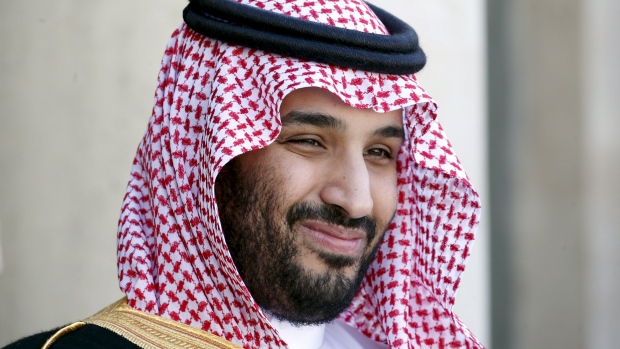-
Tips for becoming a good boxer - November 6, 2020
-
7 expert tips for making your hens night a memorable one - November 6, 2020
-
5 reasons to host your Christmas party on a cruise boat - November 6, 2020
-
What to do when you’re charged with a crime - November 6, 2020
-
Should you get one or multiple dogs? Here’s all you need to know - November 3, 2020
-
A Guide: How to Build Your Very Own Magic Mirror - February 14, 2019
-
Our Top Inspirational Baseball Stars - November 24, 2018
-
Five Tech Tools That Will Help You Turn Your Blog into a Business - November 24, 2018
-
How to Indulge on Vacation without Expanding Your Waist - November 9, 2018
-
5 Strategies for Businesses to Appeal to Today’s Increasingly Mobile-Crazed Customers - November 9, 2018
Saudi Arabia Approves “Vision 2030” Moving Away From Oil Dependence
Speaking to reporters, [Prince Mohammed] said the project. includes plans to sell less than 5% of state-owned oil giant Saudi Arabian Oil Co., known as Saudi Aramco, and transfer ownership of the company to Saudi Arabia’s sovereign-wealth fund, the Public Investment Fund, so it can build a war chest for non-oil investments overseas.
Advertisement
The Saudi cabinet’s approval of the plan, which is dubbed “Vision 2030”, was announced by King Salman in a televised announcement on Monday.
Prince Mohammed, a son of the Saudi king who also serves as defense minister and head of the country’s economic council, was giving his first nationally televised interview since his accession previous year. In a country where 70 percent of revenues come from oil, the Saudi government has for decades spent enormous amounts of money on its citizens without requiring them to pay taxes.
At the centre of the “Vision 2030” reforms is the restructuring of its Public Investment Fund (PIF), which Prince Mohammed said would become a hub for Saudi investment overseas, partly by raising money through selling shares in Aramco.
“The vision is a road map of our development and economic goals”, he said.
One part of the plan will see shares sold in state-owned oil giant Aramco to create a sovereign wealth fund.
Prince Mohammed added that he did not expect oil prices to fall below $30 a barrel again because of improving global demand and that Saudi Arabia’s economic reform plans would not be threatened even if oil does drop that far.
Saudi Arabia’s real GDP grew 3.4 percent last year, but the International Monetary Fund anticipates this growth will slow to 1.2 percent this year and will be just 1.9 percent next year.
The new reform plan comes just a week after Saudi Arabia tapped the worldwide loan market for $10bn and reports emerged that it planned a first ever sovereign bond issue.
“We restructured the fund”. The prince said that his plan aims to wean the Saudi economy off its oil addiction through taking advantage of its other competitive advantages, namely, its extensive relations with Arab and Islamic nations, its investment power and its strategic geographic location. “We will soon have control over more than 10 percent of global investment capacity”. “If Aramco gets IPO-ed that means it has to announce its statements of accounts”, he said.
He added that he wants to convert Saudi Aramco into a holding company and that all financial information related to the company will be disclosed.
“We have an addiction to oil.this is unsafe”, he said.
Advertisement
Raising the private sector contribution to Gross Domestic Product (GDP) from 40 per cent to 65 per cent in 2030.





























